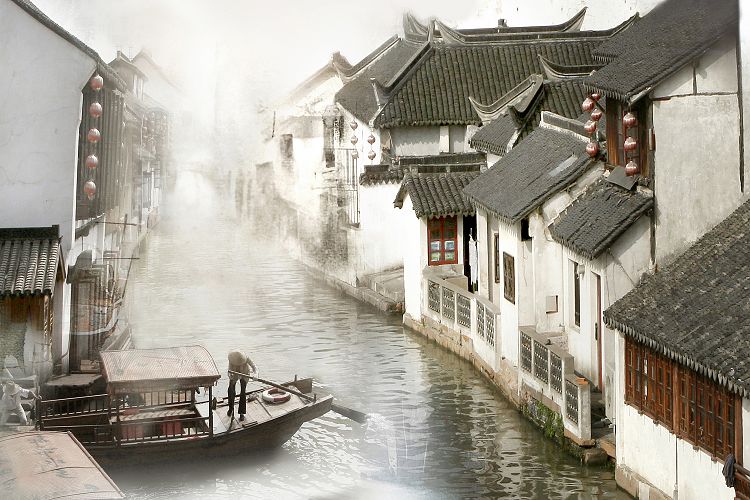Zhong Fulan: Unique traditional customs in Jiangnan
Zhong Fulan, Chairman of Shanghai Folk Culture Society and Professor of East China Normal University

For long, "Jiangnan" (south of the river, literally) has not been a mere geographical term but also (or more) a concept of cultural geography. Men of letters and arts have created a great deal of works on Jiangnan landscape, traditions and personalities, which have collectively constructed the so-called Jiangnan culture, representing or suggesting its special charm and beauty.
The poetic saying, "Jiangnan is made of water," defines the originary relationship between Jiangnan culture and water. Water is the soul of Jiangnan, in whose special beauty and charm its rivers play a vital role. People living in Jiangnan not only get around by water, but also build their settlements in full consideration of water resources. Besides, water villages and towns in Jiangnan crisscrossed by rivers are connected into a whole by bridges over waters, which are also essential in promoting its economic development. Spring rain is also a haunting scene for local people inhabitants and visitors, which creates a special atmosphere for poetic license and philosophical meditation.
In the past, the basic features of life in Jiangnan were reflected in expressions like "rice for the staple food and fish for the main dishes," "endless fields of mulberry and flax", "white walls and black roofs," and "boating instead of walking." Other customs and cultural features all originated from these basic features.
"Rice for the staple food and fish main dishes," referring to the production and lifestyle of the people in Jiangnan, characterizes the diet culture in Jiangnan, the original place of China's rice production. Here rice farming was, for long, the main way of survival and development. Therefore, Jiangnan people generally have a passion for rice. Given its long history of rice economy, the material life and eating pattern of people in Jiangnan have been shaped with a strong characteristic of rice culture. In addition to the staple food of rice, aquatic and land animals are the main "supporting sources" of food.
For one thing, sericulture and silk weaving have been popular in Jiangnan since the Shang Dynasty. Here, the practice of silkworm raising began as early as 5,000 years ago, where the silk was woven into silk fabrics. For another, archaeology has proved that about 7,000 years ago the ancestors of Jiangnan people in the Taihu Lake and neighboring areas had already learned how to use flax. With the innovation and progress made in cotton and textiles, the clothing habits of Jiangnan were also renewed. Finally Jiangnan inhabitants decided on a series of clothes, especially those suitable for women, which facilitated production and labor in water villages, thus having high practical value. Such habits, among other things, have significantly contributed to the formation of the traditional aesthetic characteristics Jiangnan.
"White walls and black roofs" represents the traditional architectural appearance of human settlement in Jiangnan. In order to adapt to the natural environment, residents in Jiangnan adopted the stilt style architecture, constructing on stilts to protect the buildings from damp and water with better ventilation. That's why "people in the south lived in nests while people in the north lived in caves." Thanks to the development of urban society, folk houses in Jiangnan gradually acquired new styles and features with the special charm of water villages, most of which were independent one-or-two-story wooden residences with a hall. Meanwhile, the landscape of multiple rivers also gives birth to a number of structures characteristic of water villages, such as bridge, revetment, river port, wharf, flagging, water-wall door, and overhead building.
"Boating instead of walking" was also peculiar to Jiangnan. There were unceasing transport lines consisting of rivers, lakes and branching streams crisscrossing throughout Jiangnan, so it was natural for people here to get around by boat. Historically, Jiangnan people were good at building and utilizing ships and boats, and Jiangnan troops were so much more skilled in fighting on the water. Prior to the emergence of modern means of transport, ships were the main means of transport here, which greatly stimulated the development and progress of local shipbuilding industry. Hence an incredible ship culture, which was of vital importance in resources transportation and intellectual communication in China, through all regions, urban and rural.

